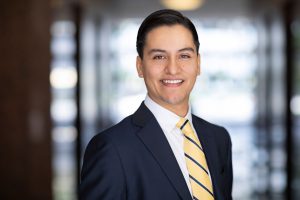Before Moore, Taranto, and Stark. Appeal from the United States District Court for the Eastern District of Virginia.
Summary: Under the Patent Act , an “inventor” must be a natural person. Therefore, an AI system cannot be an inventor.
Thaler filed two patent applications with the PTO listing DABUS, an AI system, as the sole inventor. The PTO sent Thaler Notices to File Missing Parts requesting that Thaler identify valid inventors. Thaler petitioned the PTO director to vacate the Notices. The PTO denied the petitions on the ground that a machine does not qualify as an inventor. Thaler sought review, and the parties cross-moved for summary judgment. The District Court granted the PTO’s motion for summary judgement, denied Thaler’s request to reinstate the applications, and concluded that an inventor under the Patent Act must be an “individual,” which as used in the statute is a natural person.
On appeal, the Federal Circuit concluded that the Patent Act was unambiguous in that it requires inventors to be natural persons. The Federal Circuit explained that although the Patent Act does not define “individual,” the Supreme Court has stated that when used in a statute, “individual” ordinarily means a human being unless there is an indication Congress intended a different meaning. Finding no such indication, the Court concluded that the term “individual,” in the context of the Patent Act, includes only human beings. The Federal Circuit affirmed the Districts Court’s decision.
Editor: Paul Stewart

